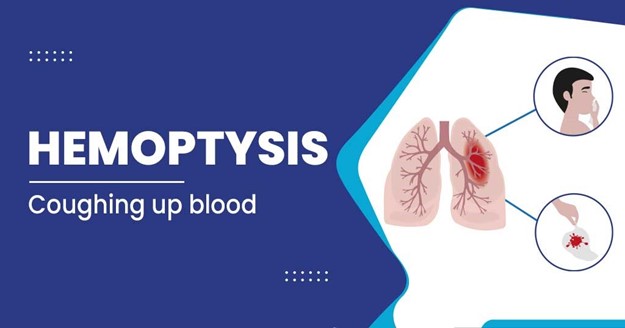A nurse is caring for a client who develops a sudden onset of dyspnea. Which of the following findings should the nurse expect if the client has a pulmonary embolus?
Expiratory rhonchi.
Petechiae over the lower extremities.
Hemoptysis.
Flattened neck veins.
The Correct Answer is C
Choice A rationale:
Expiratory rhonchi are typically associated with conditions such as chronic bronchitis or asthma but are not specific to pulmonary embolism.
Choice B rationale:
Petechiae over the lower extremities is not a characteristic finding in pulmonary embolism. Petechiae are tiny red or purple spots that appear due to bleeding under the skin and may be associated with other conditions like thrombocytopenia.
Choice C rationale:

The correct choice. Hemoptysis, which refers to coughing up blood, is a concerning finding in pulmonary embolism. It occurs due to the obstruction of blood flow in the pulmonary vasculature, leading to blood leaking into the lungs.
Choice D rationale:
Flattened neck veins are more likely to be observed in conditions associated with decreased venous return to the heart, such as hypovolemia or cardiac tamponade, and are not directly related to pulmonary embolism.
Nursing Test Bank
Naxlex Comprehensive Predictor Exams
Related Questions
Correct Answer is B
Explanation
Choice A rationale:
Providing a continuous passive motion (CPM) device is not necessary for a client following a total hip arthroplasty. CPM devices are more commonly used after knee arthroplasty to improve joint mobility.
Choice B rationale:
Ensuring the client has an elevated toilet seat at home is important following a total hip arthroplasty. The elevated seat reduces the amount of hip flexion required during toileting, which helps prevent hip dislocation and strain on the surgical site.
Choice C rationale:
Providing a trapeze bar is not essential for a client following a total hip arthroplasty. Trapeze bars are typically used to assist with repositioning in bed for clients with limited mobility, but they are not specific to hip arthroplasty recovery.
Choice D rationale:
Providing a compression garment is not necessary after total hip arthroplasty. Compression garments are often used for conditions like venous insufficiency or to manage swelling, but they are not routinely used for hip arthroplasty recovery.
Correct Answer is C
Explanation
Choice A rationale:
A blood glucose level of 100 mg/dL is within the normal range, so there is no need to notify the provider of this finding.
Choice B rationale:
A client's temperature of 37.6°C (99.7°F) is slightly elevated but not considered a critical finding. It may be indicative of an infection or other mild inflammation, but it does not warrant immediate provider notification.
Choice C rationale:
A potassium level of 5.7 mEq/L is above the normal range (3.5-5.0 mEq/L). Hyperkalemia can lead to serious cardiac complications, such as arrhythmias, and requires immediate attention from the provider.
Choice D rationale:
Weight loss of 0.8 kg/day (1.8 lb/day) should be evaluated and monitored, but it is not an immediate concern that warrants urgent provider notification.
Whether you are a student looking to ace your exams or a practicing nurse seeking to enhance your expertise , our nursing education contents will empower you with the confidence and competence to make a difference in the lives of patients and become a respected leader in the healthcare field.
Visit Naxlex, invest in your future and unlock endless possibilities with our unparalleled nursing education contents today
Report Wrong Answer on the Current Question
Do you disagree with the answer? If yes, what is your expected answer? Explain.
Kindly be descriptive with the issue you are facing.
